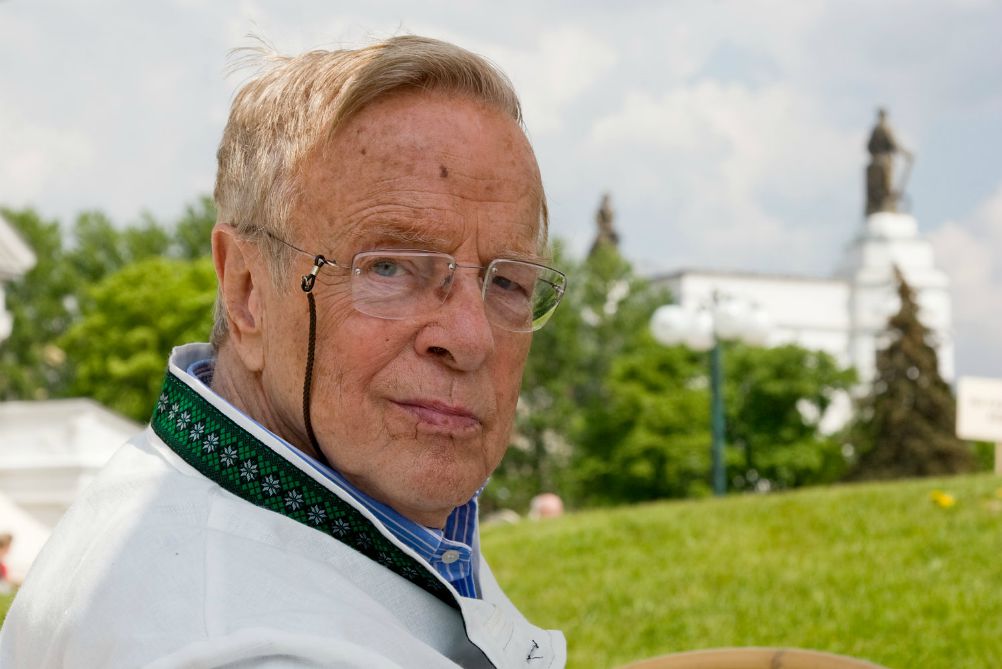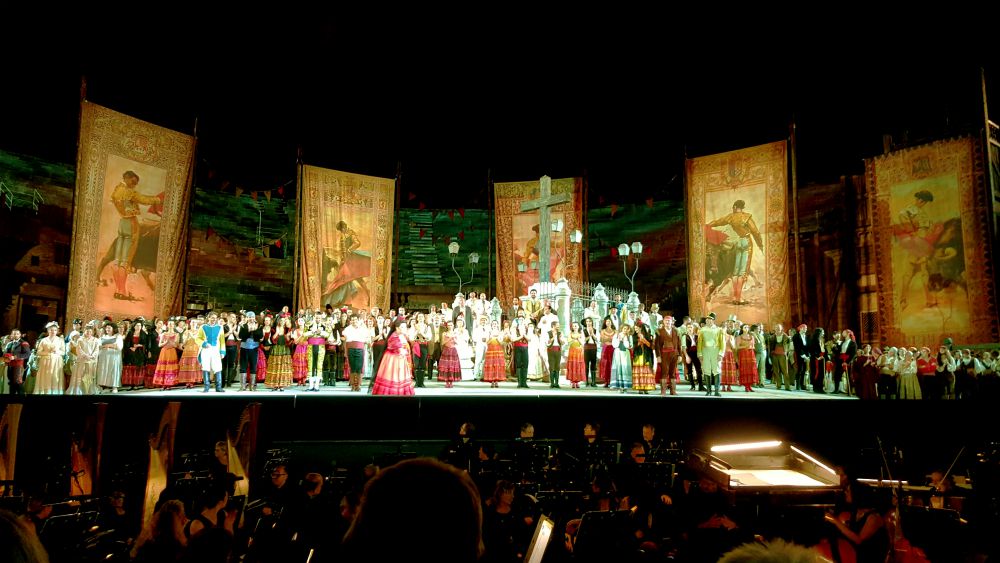
Franco Zeffirelli in Moscow, May 2008 (Wikimedia Commons/Alexey Yushenkov)
Franco Zeffirelli, the famed film director and film, television and opera producer, died on June 15, 2019, in Rome at the age of 96. He was born out of wedlock near Florence, Italy, in 1923. His mother, a widow, was not able to give him her married surname or that of his father, so she gave him the name "Zeffirelli." The story of him being named after a word in a Mozart opera seems to be one of those myths that grows up around famous people.
Zeffirelli was raised by a close relative after the death of his mother when he was just 6 years old. He graduated from the Accademia di Belle Arti in Florence in 1941 and enrolled in the University of Florence to study architecture. He learned to speak English well. His education was interrupted by World War II when he fought as a partisan and then became an interpreter for the British army. After the war, he decided to study theater and became a scene painter and assistant director for Luchino Visconti's 1948 "La Terra Trema." He and Visconti had a long love affair and lived together for several years. Zeffirelli worked with directors Vittorio De Sica and Roberto Rossellini and continued to design sets for plays, some of which he directed. He then redirected his efforts to cinema.
Zeffirelli was nominated twice for an Oscar, the first for directing "Romeo and Juliet" in 1968 and for art direction and sets in "La Traviata" in 1982. His interpretation of Shakespeare for the screen, including "The Taming of the Shrew" in 1967 and "Hamlet" in 1990, is perhaps his greatest legacy. Zeffirelli is known for many extravagant, even campy, opera productions as well, but the Catholic community will especially recall his 1972 film about St. Francis of Assisi, "Brother Sun, Sister Moon" and the 1977 television miniseries "Jesus of Nazareth" that became a worldwide phenomenon. The 1999 film "Tea with Mussolini" is considered semi-autobiographical. Not all his films were critical successes, however. His 1981 film "Endless Love" received both a Razzie and a Stinkers Bad Movie Award.
Advertisement
Zeffirelli, a Catholic whose faith influenced his work, was an enigma. He was sexually abused by a priest at a young age but said, even though the priest asked forgiveness, he was unharmed by the abuse. He was also an active homosexual who rejected the term "gay" as vulgar. Notwithstanding his lifestyle, Zeffirelli was friends with Pope Paul VI and met with Pope Francis in 2016 to present a copy of his book Francesco with photos from the set of the film "Brother Sun, Sister Moon." According to the Associated Press, Zeffirelli was "one of the few Italian directors close to the Vatican and the church turned to Zeffirelli's theatrical touch for the live telecasts of the 1978 papal installation and the 1983 Holy Year opening ceremonies in St. Peter's Basilica."
The director was also anti-abortion and wanted the death penalty for women who had them, perhaps because his mother had been urged to terminate her pregnancy, given her marital status. He was an ultra-conservative who served two terms in the Italian Parliament as part of Silvio Berlusconi's Forza Italia party in the '90s.
In the June 19 Italian edition of L'Osservatore Romano, the Vatican's newspaper, Emilio Ranzato writes that Zeffirelli was a misunderstood artistic prophet and that it made perfect sense for him "to adopt the highest models that a director can imagine to stage, and that has occupied half of his filmography: Christianity and Shakespearean characters." While Ranzato waxes mystical on Zeffirelli, he completely overlooks the recent accusations that the director was a sexual predator.

Scene from Georges Bizet's "Carmen," performed in Verona, Italy, July 7, 2016, with sets and direction by Franco Zeffirelli (Wikimedia Commons/Panoramio/Randreu)
American actor Johnathon Schaech told his story of Zeffirelli's abuse when he was a young actor on the set of "The Sparrow" to People magazine in 2018, though Zeffirelli's son, one of two men the director adopted as adults, denied it. Schaech, a Catholic, wrote an op-ed piece for The Wrap earlier this year in which he suggested that the Catholic Church needed its own #MeToo movement and could take a page from what Hollywood is trying to do to prevent future abuse and bring offenders to justice.
Schaech is not the only one in the film industry to accuse Zeffirelli; British director Bruce Robinson claims that as a young actor he was a victim of Zeffirelli's sexual advances during the filming of "Romeo and Juliet" in 1968.
[Sr. Rose Pacatte, a member of the Daughters of St. Paul, is the founding director of the Pauline Center for Media Studies in Los Angeles.]








